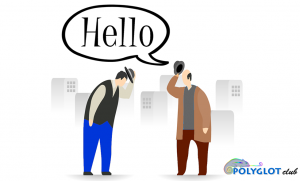Language/Dagbani/Vocabulary/How-to-Say-Hello-and-Greetings
< Language | Dagbani | Vocabulary
Jump to navigation
Jump to search
Rate this lesson:
🤗 Dagbani Greetings for Everyday Life
Hello, Dagbani Learners! 😃
➡ Do you want to learn how to say “Hello” in Dagbani?
Dagbani (or Dagbane, Dagbanli and Dagbanle) is spoken in Ghana and Northern Togo.
Greetings are an important part of any language because they allow you to connect and communicate with others.
If you’re planning a trip to Ghana or Northern Togo, keep reading to discover some of the most important greetings.
Let’s get started! 🤗
Greetings[edit | edit source]
- Keep in mind that pronunciation may vary across different dialects and regions.
| English | Dagbani |
|---|---|
| general greeting | A maraaba |
| general greeting | Maraaba |
| morning greeting | Dasiba |
| morning greeting | Dasiba naa |
| morning greeting, "the morning is cool" | Ti maasim |
| morning greeting, "how did you sleep?" | Agbihira? |
| reply to Agbire | Gombeni |
| morning greeting, "did you sleep well?" | Agbihiya? |
| reply to Agbihiya | Ii, gombeni |
| afternoon greeting | Antire |
| afternoon greeting | Antire naa |
| evening greeting | Aninwula |
| evening greeting | Aniwula |
| evening greeting | Aninwula naa |
| evening greeting | Zanɔrɛ |
| greeting spoken to a person who is working | Naatuma |
| how are you? | Aningbuna be wula? |
| reply to Aningbuna be wula | M mali alaafee |
| reply to Dasiba, Antire, Aninwula, Naatuma, and Aningbuna be wula spoken by a man | Naa |
| reply to Dasiba, Antire, Aninwula, Naatuma, and Aningbuna be wula spoken by a woman | Nnaa |
| how are you? spoken to one person | A gbihira? |
| how are you? spoken to a group | Yi gbihira? |
| reply to A gbihira | A gom bieni |
| reply to A gbihira | Gom bieni |
| how are you? | Kawula? |
| reply to Kawula | Sha alafeea |
| reply to Kawula | Alafeea |
| how are you? spoken to a person who is working | A tuma be wula? |
| reply to A tuma be wula | Dicheni ven yela |
Videos[edit | edit source]
Learn Dagbanli - Greetings[edit | edit source]
Boys are greeting other students in Dagbani[edit | edit source]
Dialogue[edit | edit source]
Here's an example dialogue using some of the words we just learned:
- Yɛnɣa
Hello
- Ni ti bɔɔla?
How are you?
- Mɛ suba
I'm fine
- Mɛ lɛɣiɣu
Good evening
- Naawuni
Good night
Sources[edit | edit source]
Free Dagbani Lessons[edit | edit source]
Language Exchange[edit | edit source]
Forum[edit | edit source]
Tools[edit | edit source]
Marketplace[edit | edit source]
Other Lessons[edit | edit source]


